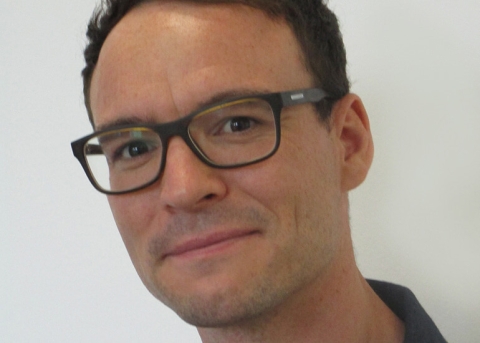

Dr George Ackers
Biography
Dr. George Karl Ackers is a Senior Lecturer in Sociology at the University of Portsmouth, which he joined in 2013. Before this, he studied Sociology at Roehampton University, followed by an MA in Social Policy from the University of Nottingham. He completed his PhD in 2017 on the sociology of work, entitled ‘De-industrialisation and Masculine Work Identity in the Former Naval Repair Community of Medway, Kent’.
Research interests
George's intellectual interests focus on the sociology of work, class, and gender, and how processes such as deindustrialisation affect people’s lives, identities, and sense of community. His PhD explores how generations of men have navigated the transition from industrial to post-industrial work. He has published on this topic in the article: George Karl Ackers (2014): Rethinking Deindustrialisation and Male Career Crisis, British Journal of Guidance & Counselling. He also explores the continued significance of craft as a means for men to understand both their paid and domestic work as a meaningful and unified career. His papers include: (2018) Craft as Work-Life Unity: The Careers of Skilled Working-Class Men and Their Sons and Grandsons after Deindustrialisation, Gender, Work & Organization, and (2020) The ‘Dual Tension’ Created by Negotiating Upward Social Mobility and Habitus, Current Sociology. These papers contribute to the emerging qualitative research framework that understands the personal tensions social mobility creates for individuals. He has also co-published with Dawn: Dawn & Ackers (2021) “The Interpersonal is Political”: Understanding the Sociological Ambivalence Created in Parent and Adult Offspring Cohabiting Relationships in the journal Family Relations.
George has recently finished a BA/Leverhulme Small Research Grants 2018-19 funded study, which provides one of the first accounts of the impact deindustrialisation has had on female workers. This study, entitled: Women, Men and Deindustrialisation: An Intergenerational Study of Trade Workers from Naval Repair Families in the South of England, has been co-developed as part of the 2024 SHE_SEES Rewriting Women into Maritime History exhibition at Portsmouth Royal Dockyard with Melanie Bassett and the Lloyd's Register Foundation (https://hec.lrfoundation.org.uk/whats-on/she_sees).
Research Funding:
George, along with Melanie Bassett and Patricia Gilbert, is currently submitting an AHRC Curiosity Award proposal. The project, entitled Beyond the Dockyard Apprentice: Learning from the Royal Dockyards' Apprentice System to Highlight Barriers and Pathways to Future Apprenticeships in UK Shipbuilding for Young Adults from Black and Minoritised Ethnic Backgrounds, aims to address barriers in the UK shipbuilding industry.
Research Citizenship:
George has recently become the lead for the Sociology and Social Theory Research Cluster Group.
Teaching responsibilities
Research supervision
Last year George gain his first completion as first supervisor of Bill Cleary PhD, entitled ‘Social worker reflection- Conversations with social workers about how they reflect in practice’. George is also first supervisor to Hannah Green’s PhD project on corporate employment and wellbeing within, current capitalist society as is funded by the (ESRC South Coast Doctoral Training Partnership Studentship in the Citizenship, Governance and Security Pathway).
Research developed teaching:
George PhDs and research are the foundations for his teaching as have been developed into the two sociology undergraduate modules Work, Employment and Society and Family Career and Generations. His more recent research is now being use to develop and contribute to the new MSc in sociology. George also has research interests and would be happy to hear from postgraduate students interested in studying the topics of:
- work and employment
- masculinities and identity
- age, intergenerational research and oral histories
- craft and D.I.Y
- gender and work in male dominated employment
Research outputs
2021
“The interpersonal is political”: Understanding the sociological ambivalence created in parent and adult offspring cohabiting relationships
Halliwell, S. D., Ackers, G. K.
22 Nov 2021, In: Family Relations
Research output: Article
